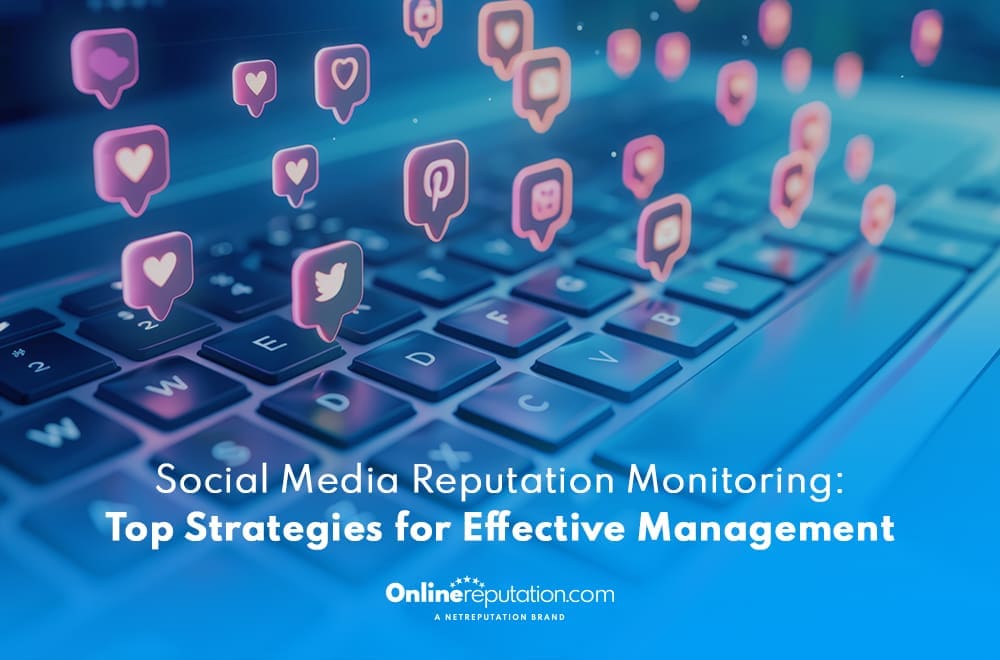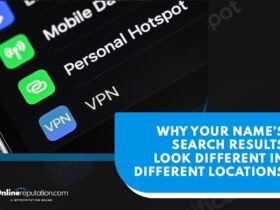Social media reputation monitoring is crucial for any business today. It involves keeping track of brand mentions and public sentiment on social platforms. This helps you address issues quickly and build a positive brand image. This article will cover key strategies, essential tools, and tips for effectively engaging with your audience.
Understanding Social Media Reputation Monitoring
Any business aiming to establish a strong online presence must understand social media reputation monitoring. This involves:
- Tracking what is being said about your brand across various social media platforms
- Analyzing brand mentions and reviews in real-time to gain insights into public perception
- Encouraging direct brand interactions
- Identifying potential issues
- Improving the brand’s online image and reputation
Effective online reputation management is essential for maintaining a positive online presence. It involves responding to comments and reviews and shaping and maintaining a positive perception online. Social media is an open platform where people can freely express their opinions, presenting business opportunities and challenges. Proactive monitoring helps mitigate negative perceptions and maintain a consistent online presence, which is vital for businesses of all sizes.
Focused social media reputation strategies significantly contribute to brand loyalty and market value. Understanding the sentiment behind brand mentions and engaging with your audience helps build a positive online presence, boosting referral and conversion rates. Real-time monitoring of social media channels allows businesses to protect their reputation by addressing negative comments promptly and highlighting positive feedback.
Key Steps to Monitor Your Brand’s Social Media Reputation
- Track Brand Mentions and Conversations: Listening to what people say about your brand is crucial for social media reputation management. You can manage your reputation and avoid negative reviews by monitoring comments, mentions, and tags. Pay attention to the tone of comments to understand customer sentiment and brand perception. Sentiment analysis helps you understand public opinion and can guide your marketing decisions. Monitoring user-generated content can identify new influencers, boost brand loyalty, and enhance brand exposure.
- Monitor Competitor and Industry Keywords: Keeping an eye on competitors helps you compare your social media activity with others in your industry, measure performance, and find opportunities. Monitoring industry-specific keywords and trends informs you about what’s being said about your industry. This information helps you set benchmarks, stay competitive, and adapt your strategies to maintain a strong online presence.
- Use Social Listening Tools: Social listening tools like Hootsuite, Talkwalker, and Brand24 are essential for effective social media reputation management. These tools help track brand mentions, analyze public opinion, and determine what’s popular or harmful to your brand. They offer features like real-time alerts and engagement metrics, helping businesses maintain their online reputation and make informed decisions.
- Engage with Your Audience Effectively: Engaging with your audience is crucial for building a positive online presence. Prompt responses to feedback show customers that their opinions are valued, fostering a positive reputation. Engaging with reviews and comments can build strong relationships and enhance your brand’s image. Being proactive and positive in your responses can improve your social media reputation.
- Respond Quickly to Customer Feedback: Quick responses show your dedication to customer service and that you value your customers. This approach boosts customer satisfaction and builds trust. Tools like ReviewTrackers help monitor and respond to online reviews, ensuring no feedback goes unnoticed. Prompt responses prevent negative feedback from escalating and foster customer loyalty.
Proactive Reputation Management Strategies
- Develop a Consistent Brand Voice: Consistency in brand messaging across all channels is crucial for building trust and a recognizable brand image. A uniform brand voice across social media channels fosters familiarity and comfort for users, leading to better interaction and empathy. Creating a social media policy helps maintain consistent messaging by outlining the brand’s tone, style, and values. This approach strengthens the brand’s online presence and builds customer loyalty.
- Create Engaging Content: Providing valuable and engaging content encourages positive interactions and keeps the audience connected with the brand. Strategies include sharing industry news, offering behind-the-scenes looks, updating product information, and addressing human issues. Engaging content should cover topics that interest the target audience, reinforcing the brand’s values and image.
- Implement a Crisis Management Plan: A crisis management plan is essential for handling negative feedback and protecting brand sentiment. The plan should include guidelines for delivering prompt and professional responses, addressing issues before they escalate, and proactively mitigating controversies. Automated workflows for crisis management can help respond to incidents in real time, assess potential reputation risks, create action plans, and build positive relationships after a reputation-damaging event. This helps manage the brand’s online reputation effectively.
Measuring the Success of Your Reputation Management Efforts
Analyzing engagement metrics and sentiment analysis reports is crucial for understanding brand visibility and public perception. Evaluating engagement ratios helps gauge how many people see and interact with your content and when your audience is most responsive. Key metrics include engagement rate, follower count, reach, demographics, and video views. Sentiment analysis assesses the tone of conversations about your brand, providing insights into public opinion. This information helps businesses make informed decisions, address negative feedback, and highlight positive mentions to improve their online reputation. Regularly updating strategies based on these insights ensures effective reputation management and alignment with business goals and customer needs.
Enhancing Your Social Media Reputation
In conclusion, effective social media reputation monitoring is crucial for maintaining a strong online presence and building customer trust. By tracking brand mentions, monitoring competitors, and using social listening tools, businesses can gather valuable insights and respond quickly to customer feedback. Engaging with your audience, addressing negative reviews, and encouraging positive interactions are key strategies for enhancing your online reputation.
Proactive reputation management strategies, such as developing a consistent brand voice, creating engaging content, and implementing a crisis management plan, are essential for maintaining brand credibility and trust. Using tools like Hootsuite, Talkwalker, and Brand24 can help businesses monitor and analyze their social media reputation, staying ahead of potential issues and maintaining a positive online presence. By measuring the success of your reputation management efforts and adjusting strategies based on insights, you can continuously improve your social media approach and achieve long-term success.















